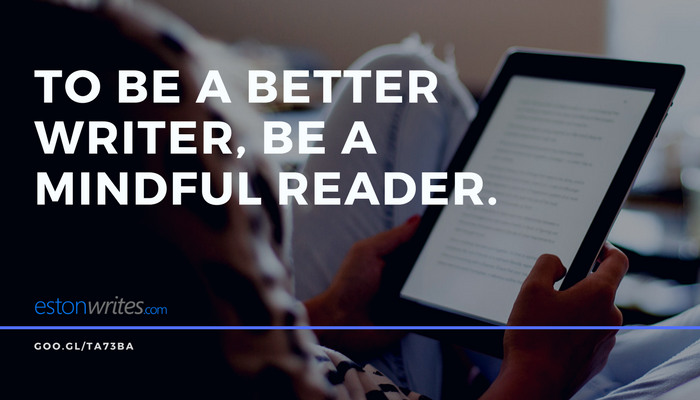
Good writers usually enjoy reading—a lot. For many of us, it's our primary leisure activity. But suppose reading's not your thing. If you're not a voracious reader, can you still be a good writer?
Yes. But if you don't like to read for pleasure, and you want to become a better writer, you need to change the way you think about the reading you do engage in.
In fact, even if you do love to read, this shift in how you think about reading will help you, too.
Read Actively, Not Passively
In a world where the printed page constantly competes for our attention against flashing, eternally updating screens, many people tell me, "I never read." But that's not true at all. What they mean is that they don't sit down and read books, stories, or articles in the traditional way.
Whether or not you read for pleasure, you nonetheless consume a tremendous volume of written material every day. Social media. Print, online, and television ads. Emails. News. Text messages from friends. Mail. You're reading thousands of words every day, and somebody wrote every word you see.
But how consciously are you consuming all this text that fills your environment? Most of us just read for meaning, without paying much attention to how the words have been put together.
Are you truly noticing the way the text you read is prepared and presented? To borrow a term from the yoga community, are you reading with mindfulness?
Approaching all of this text actively—as a thing to be experienced and examined, and not just a background element—will do wonders for your own writing.
An Exercise for Reading with Mindfulness
Over the next week try to pay attention to every word you consume, from web site copy to scrolling television news headlines, from the instructions on a microwave popcorn bag to your favorite story. As you read, recognize how you're experiencing and reacting to the text, and how the writer's choices affect your experience.
As you read, ask questions. What makes this piece of text effective or ineffective, in your estimation? What phrases, sentences, ideas, and words move you, and which leave you cold? Which headlines make you feel something? Which do you tend to overlook? What text bores you, and what fires you up? And most important, why?
The more you apply mindful or active reading techniques, the more you'll notice and appreciate the different ways writers of all skill levels use words.
You'll begin to see techniques writers employ to induce a certain effect, and where careless phrasing and word choices inhibit a message's effectiveness.
You'll also begin to recognize how different approaches to writing and language can be used to fulfill different intentions—for example, ad copy strives to grab and keep your attention, while some legal documents are designed to be nearly impenetrable.
If you really want to maximize the benefits of reading actively, and have some fun along the way, pick out a sentence that really appeals to you and rephrase the idea it expresses to evoke a different reaction. For example, rewrite an advertising blurb as if it were an objective product review. Or take a paragraph from a how-to document and recast it as a breathless come-on for a new product or service. This is a quick way to see how the words we select can shade a concept in many different ways.
Finally, consider the source of the many pieces of text that you read, and think about the degree of attention that was paid to crafting each message. Identify the ones that resonate most with you, and that you can learn the most from, and see what makes them work. Then look for more examples of high-quality writing.